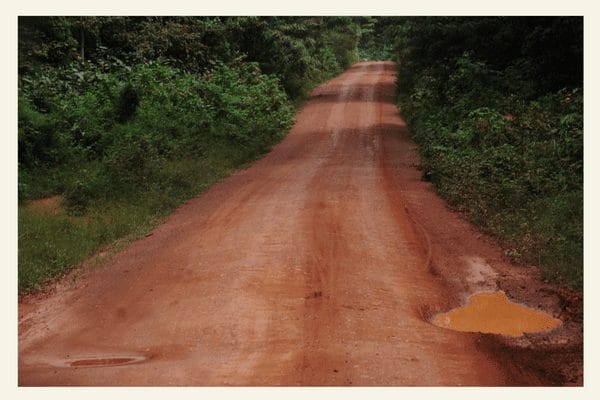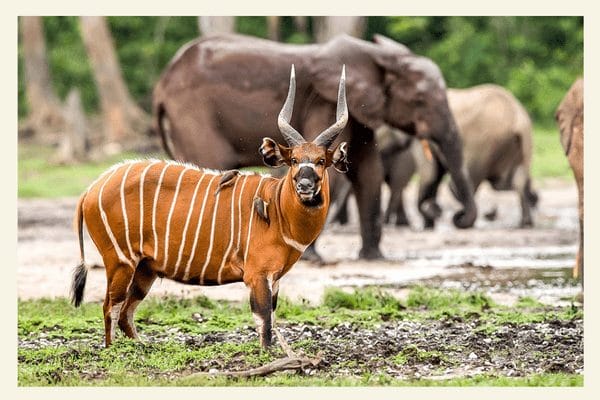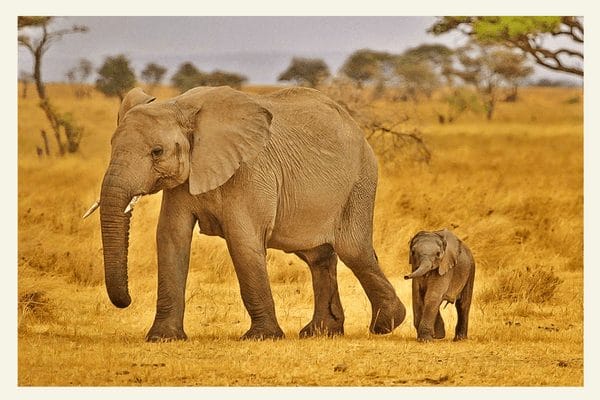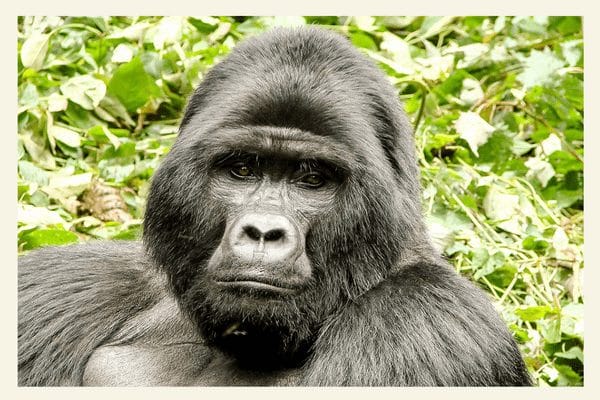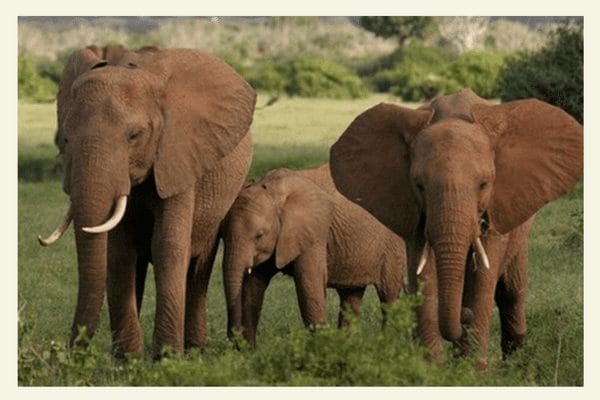- 9 Days
- Jan-Jun
- Availability: 13
- Minimum Group: 5
Experience the Diversity of Lobeke National Park
Descriptions
Explore the diverse wildlife of Lobéké National Park, a 217854 ha conservation area that includes the Lobéké National Park, Dzanga-Sangha and Nouababélé protected areas. Immerse yourself in the lush landscape of large trees and listen to the sounds of cicadas and birds while encountering different species of monkeys and other animals.
As an animal lover, you’ll have the chance to spot 45 species of mammals, 305 species of birds, 18 reptile species, 16 amphibian species, 134 fish species and 215 butterfly species. Observe wild animals in their natural habitat from the comfort of a watchtower during their feeding times and see gorillas, elephants, sitatunga, bongos, buffaloes, giant pigs and many species of birds. Experience the wilderness by spending a night in tents near the watchtower.
Included
- Double accommodation in half board basis
- Meet & greet
- Land transportation all inclusive
- All entries as mentioned in the program
- An English speaking professional guide
- Mineral water (1.5 lt per day)
- Local guides and porters
Excluded
- International Air Fares & Visas
- Baka traditional dance
- Lunch & Drinks
- Tips/Gratuities
- Personal needs not mentioned in the program
- Laundry
From
€ 2,238
/ pp
*Indicative price
Send us an enquiry

Popular Spots
- Ba’Aka Pygmy settlements.
- Lobeke National Park
- Petite Savane clearing
- Forest Elephants
- Djembe Camp
- The Great Apes Sanctuary of Mfou
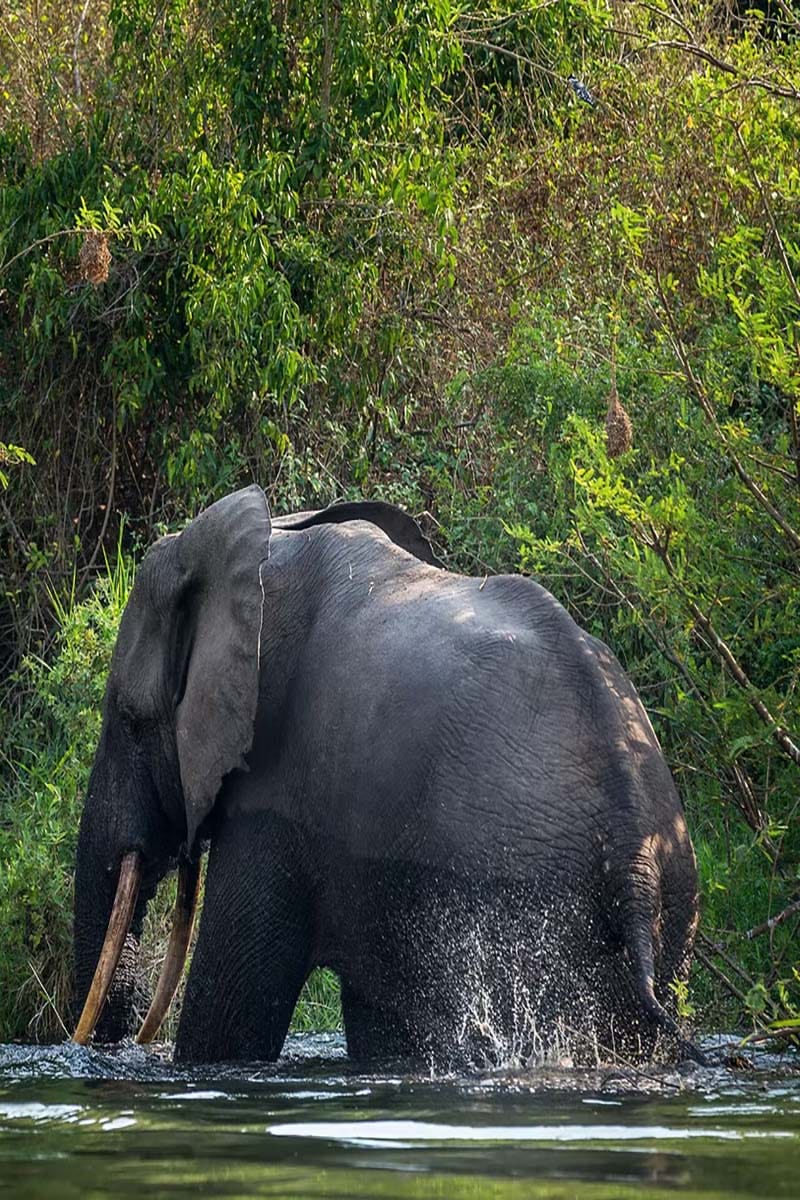
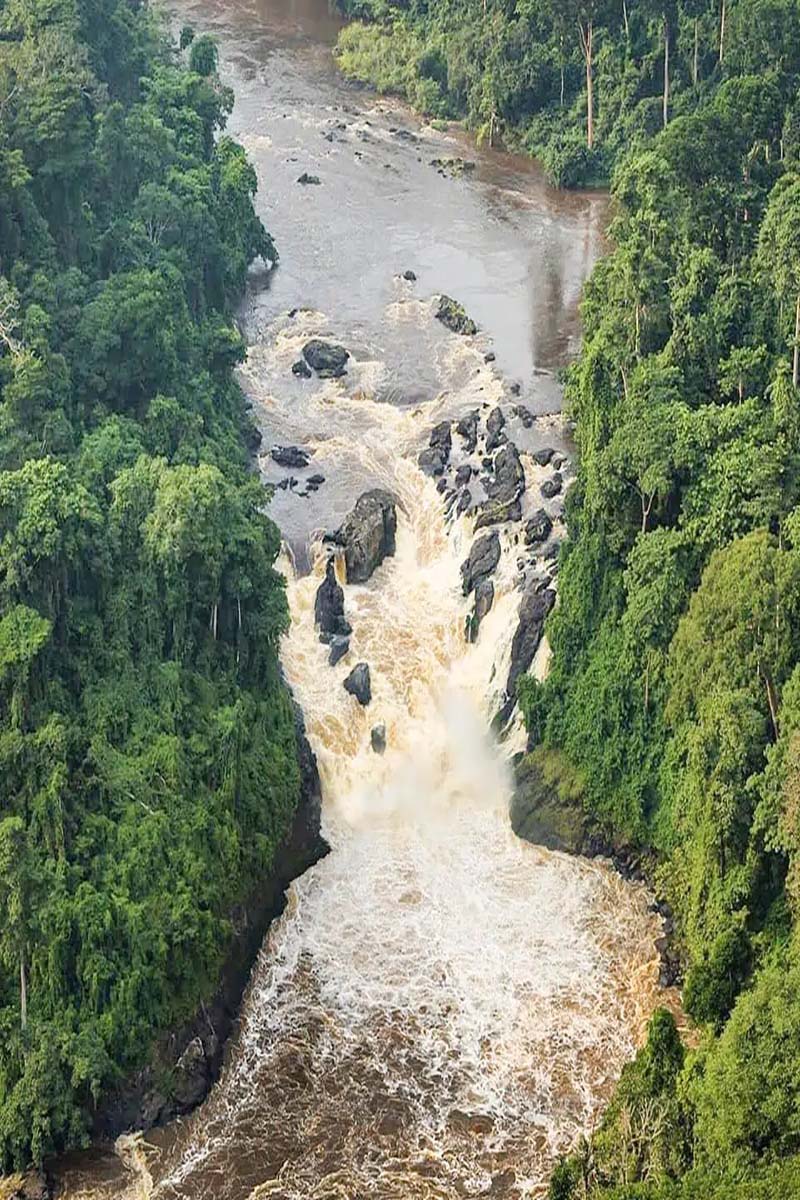
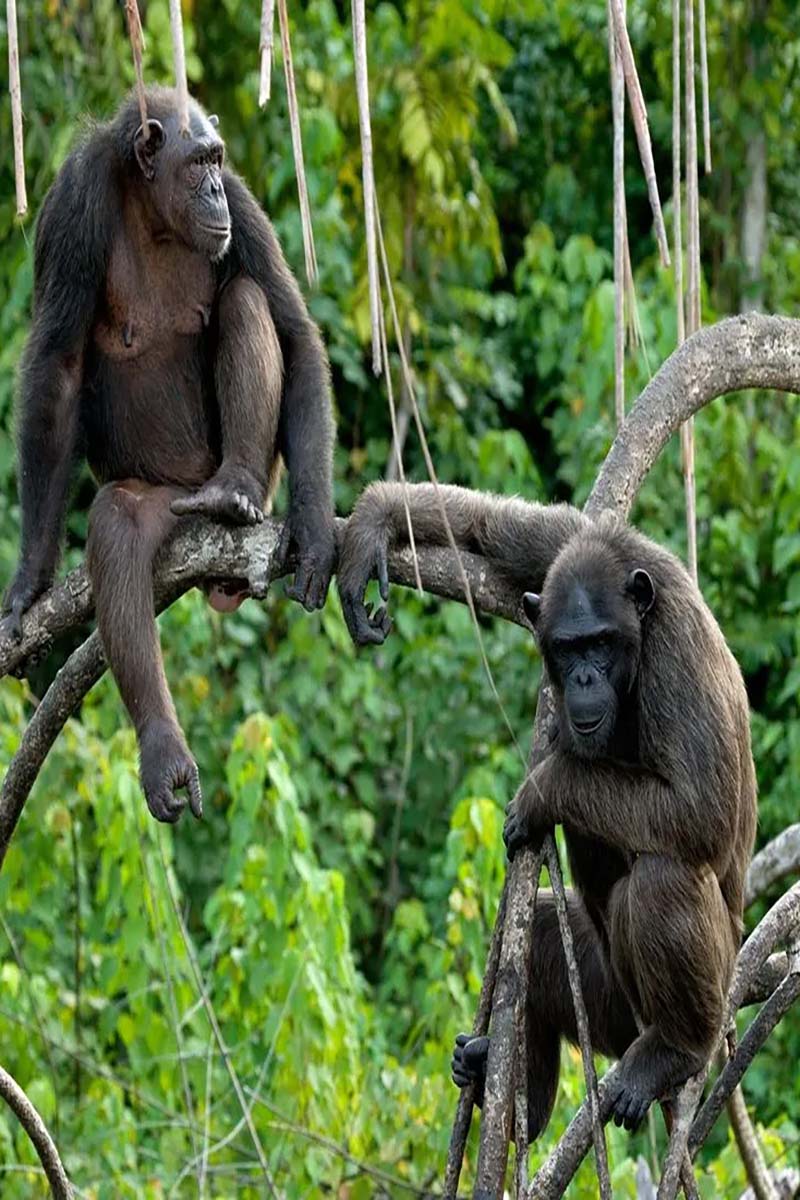
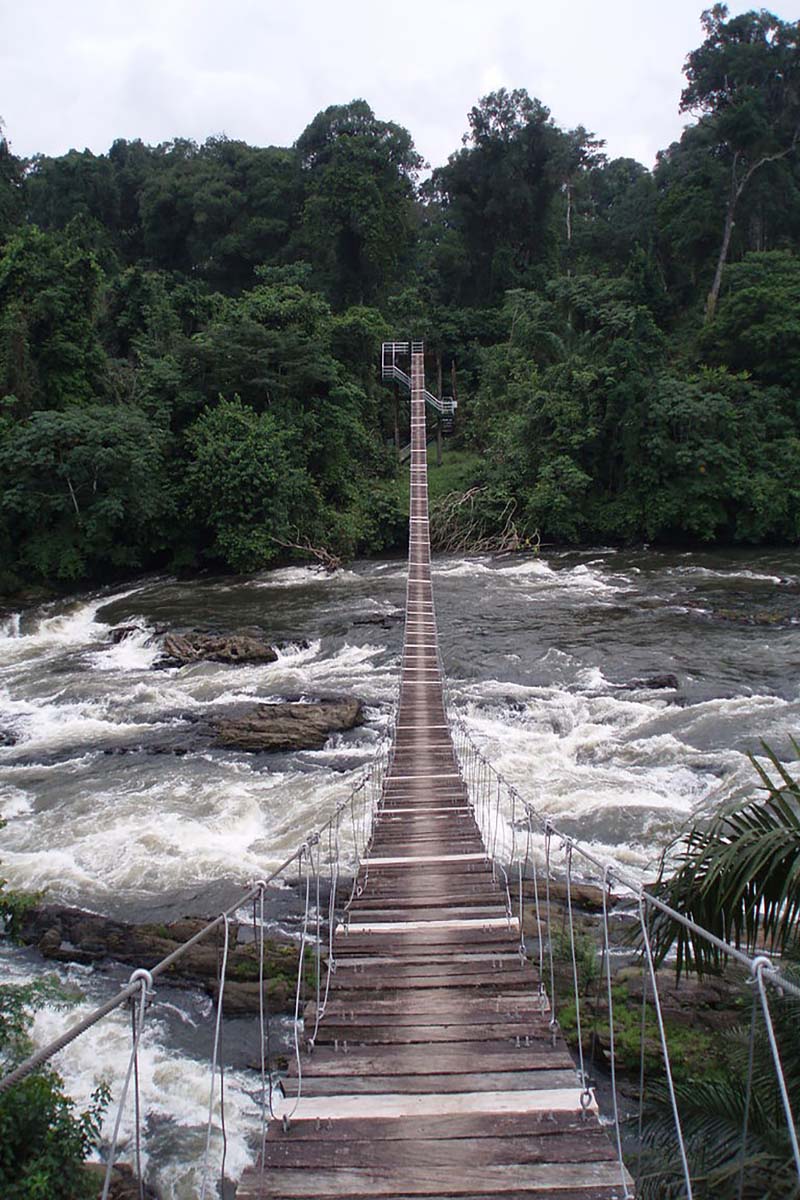
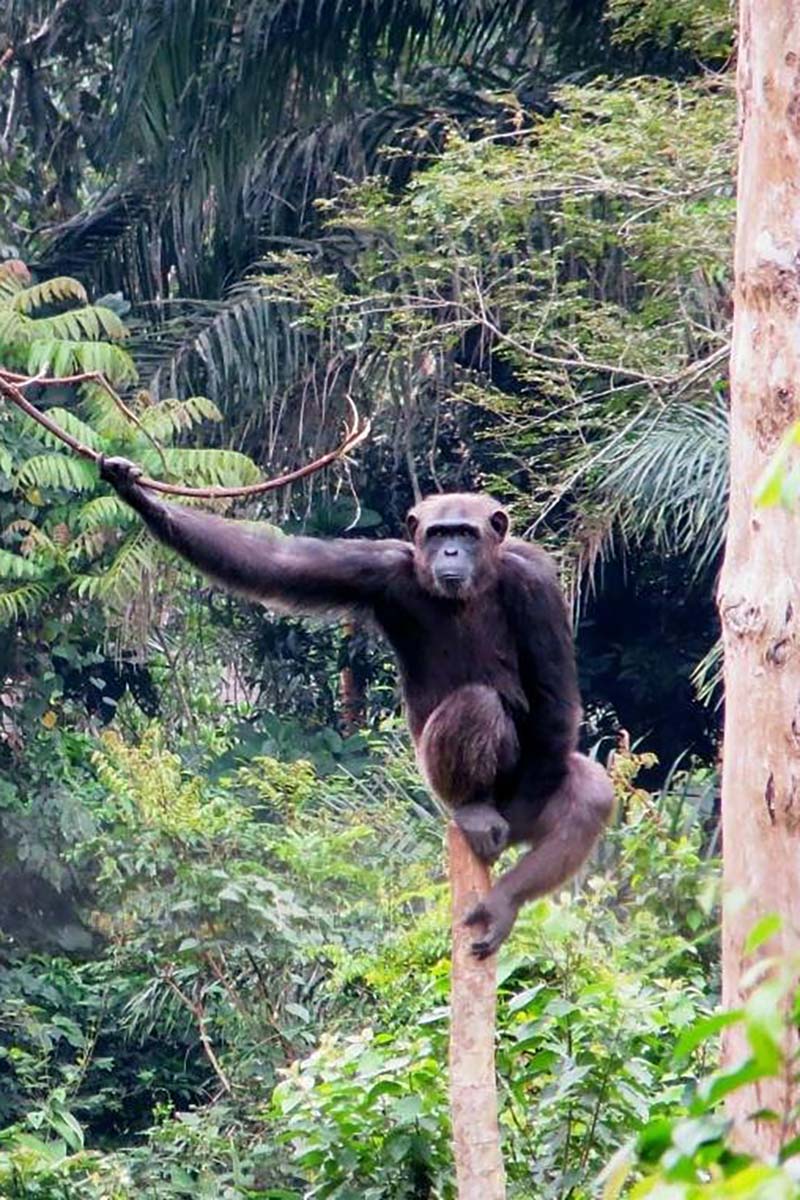

Memorable Moments.
Lobeke National Park
The large forest clearings known by the Ba’aka pygmy name of « bais » offer enormous opportunities for large mammals such as elephants, gorillas, bongo antelopes and many other forest species.
Some of the bais are larger than football pitches with soils rich in various minerals attracting the forest’s megafauna. Observation towers (miradors) have been built in some of the bais in Lobéké and Boumba Bek to support both ecological monitoring work and the reception of tourists.
More than 330 species of birds have been recorded in the area to date.
The Baka Pygmies
Here, the Baka Pygmies are still the only custodians of the secrets of the forest, moving in symbiosis with the dense equatorial vegetation, between the Lobaye and Sangha-Mbaeré regions. It is therefore not surprising that on the trail of the gorillas, elephants, crocodiles and hippopotamuses that inhabit these green lands, it is the Baka hunters who lead the way, the only ones able to move nimbly in the environment surrounding their camps of huts, knowing how to interpret every slightest sign of nature, such as reading animal tracks, predicting the weather and even interpreting animal and bird calls.
Trip Schedule.
Nsimalen Airport (Yaoundé) Djeuga Palace Hotel
Upon your arrival at the DLA International Airport, our guide will meet and greet you and provide airport assistance if needed. You will then be transferred to your hotel in a private car for check-in, briefing, dinner, and overnight stay.
Yaoundé – Yokadouma Elephant Hotel
After an early breakfast, we set out on a journey to Yokadouma. The route, which spans a distance of 545km, is partly unpaved and takes us through the stunning equatorial rainforest. We pass by picturesque Bantou villages where the locals are engaged in their traditional farming practices of slash and burn. As we continue further south, we encounter settlements of the Ba’Aka Pygmy people. We reach Yokadouma by late afternoon, either via Lomié or Batouri.
Yokadouma – Lobeke (Petite Savane) Tents
Today, we’ll start the day with an early breakfast before setting off to Lobeke National Park. We’ll take a scenic drive through the rainforest towards « Petite Savane, » a partially swampy forest clearing within Lobeke that is home to Western Lowland Gorillas, Forest Elephants, Sitatungas, Black & White Colobus, and an abundance of birdlife. After parking our vehicle, we’ll embark on a 2-hour hike through the rainforest guided by an experienced ecoguard to reach the « Petite Savane » clearing. Once there, we’ll set up camp and spend the day observing the wildlife from the elevated watchtower located on the clearing’s outskirts.
Lobeke (Petite Savane – Djangui) Tents
Today, we embark on a journey deeper into the rainforest to explore Djangui Baï. This 3-4 hour hike takes us to the heart of Lobeke National Park, where we will find some of the most diverse wildlife in the area. Djangui is known for its abundance of African Grey Parrots, Green Pigeons, Red River Hogs, Forest Buffaloes, Forest Elephants, Western Lowland Gorillas, Chimps and even Leopards. We will set up camp at the watchtower, where we can observe the animals interacting in the clearing in front of us. We will spend the night in tents, immersing ourselves in the natural beauty of the park.
Lobeke ( Djangui – Petite Savane) Tents
On this day, we begin our journey back to Petite Savane early in the morning, as the wildlife activity in the clearing begins to slow down. After the hike, we spend the afternoon relaxing and observing the diverse array of wildlife at Petite Savane from the comfort of the watchtower. We spend the night camping in tents.
Lobeke (Petite Savane – Bolo – Djembé) Tents
After an early morning observing wildlife from the watchtower at Petite Savane, we depart and drive through the jungle to the Djembe Camp. Along the way, we make a stop at Bolo Baï, a unique marshy forest clearing located in the southwest part of the Park. This area is known for its high concentration of Sitatungas, Buffaloes and Elephants. After a picnic lunch, we continue on to Djembe, which is located on the eastern side of the park and borders Nouabalé-Ndoki National Park in Congo. The camp is situated along the Sangha River and is part of the Sangha Tri-National protected area.
Lobeke (Djembé) – Yokadouma Elephant Hotel
Today, we make our way to Yokadouma, with the option to either travel by road or via the Sangha River. The choice of transportation will be determined by logistics and availability, and you will be informed of the chosen option a month before departure. If we take the road, we may have the chance to spot various wildlife in the early morning. If we choose the river route, we will take a motorized pirogue to Libongo before boarding a car to Yokadouma. This option offers a great opportunity for bird watching enthusiasts. We will arrive in Yokadouma in the late afternoon and spend the night there.
Yokadouma – Yaoundé Djeuga Palace
We set off from Yokadouma early in the morning after breakfast, heading towards Yaoundé via the towns of Lomié or Batouri. The route we take depends on the condition of the road. We will stop for lunch en route and arrive in Yaoundé in the afternoon. Once we reach the hotel, we will check in, have dinner and spend the night.
Yaoundé – Mfou – Return flight
Today, we have a buffer day to allow for any unexpected delays or flight schedule changes. You can choose to spend the day relaxing at the hotel or taking part in one of our proposed activities. If you prefer, in the morning we can take a tour of Yaoundé, the political capital of Cameroon. Later, we will visit the Great Apes Sanctuary in Mfou, a sanctuary dedicated to the protection of endangered great apes that have been rescued from captivity. Then, we will transfer to the Nsimalen International Airport for our flight back to Europe, concluding the trip.


